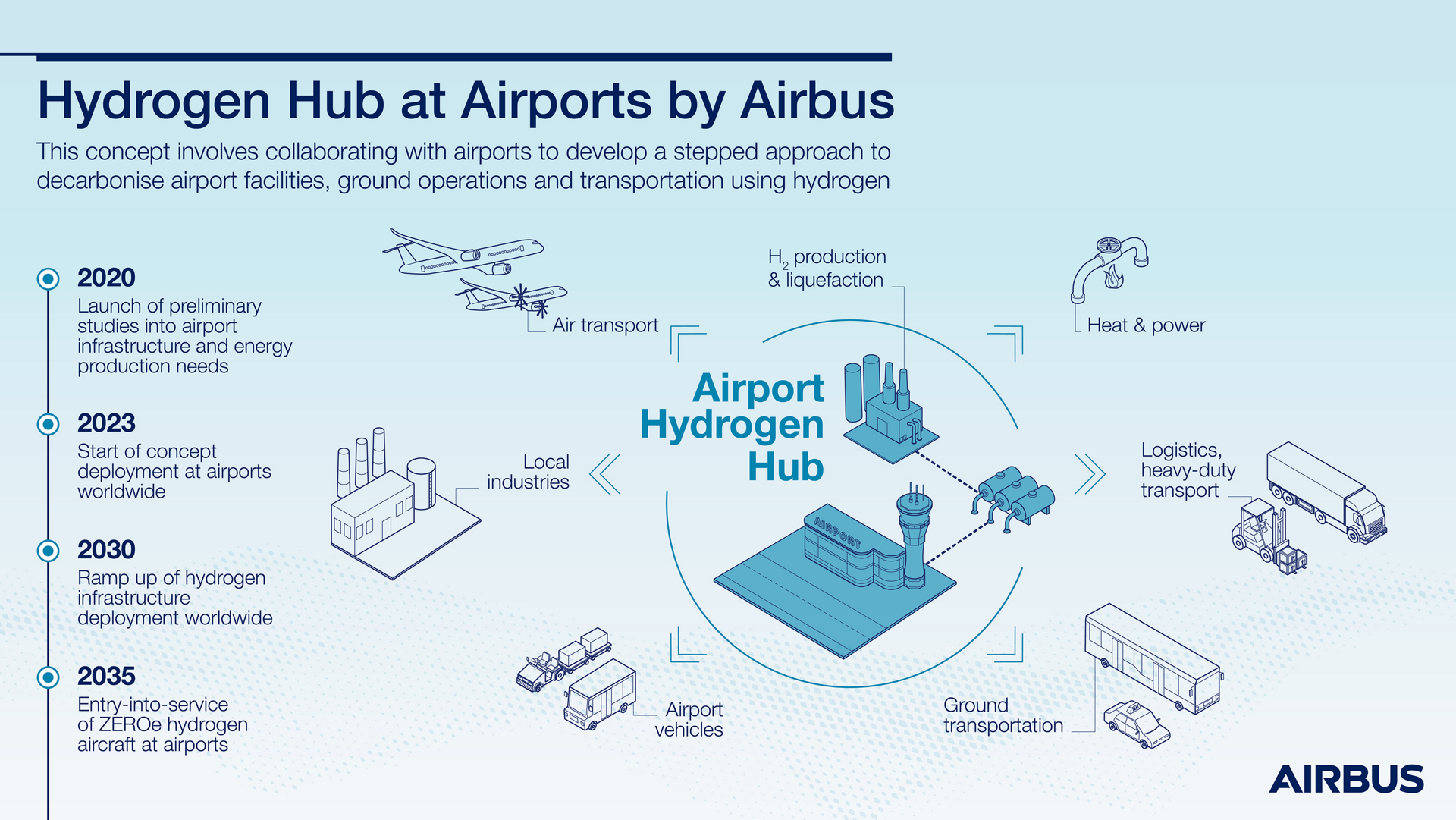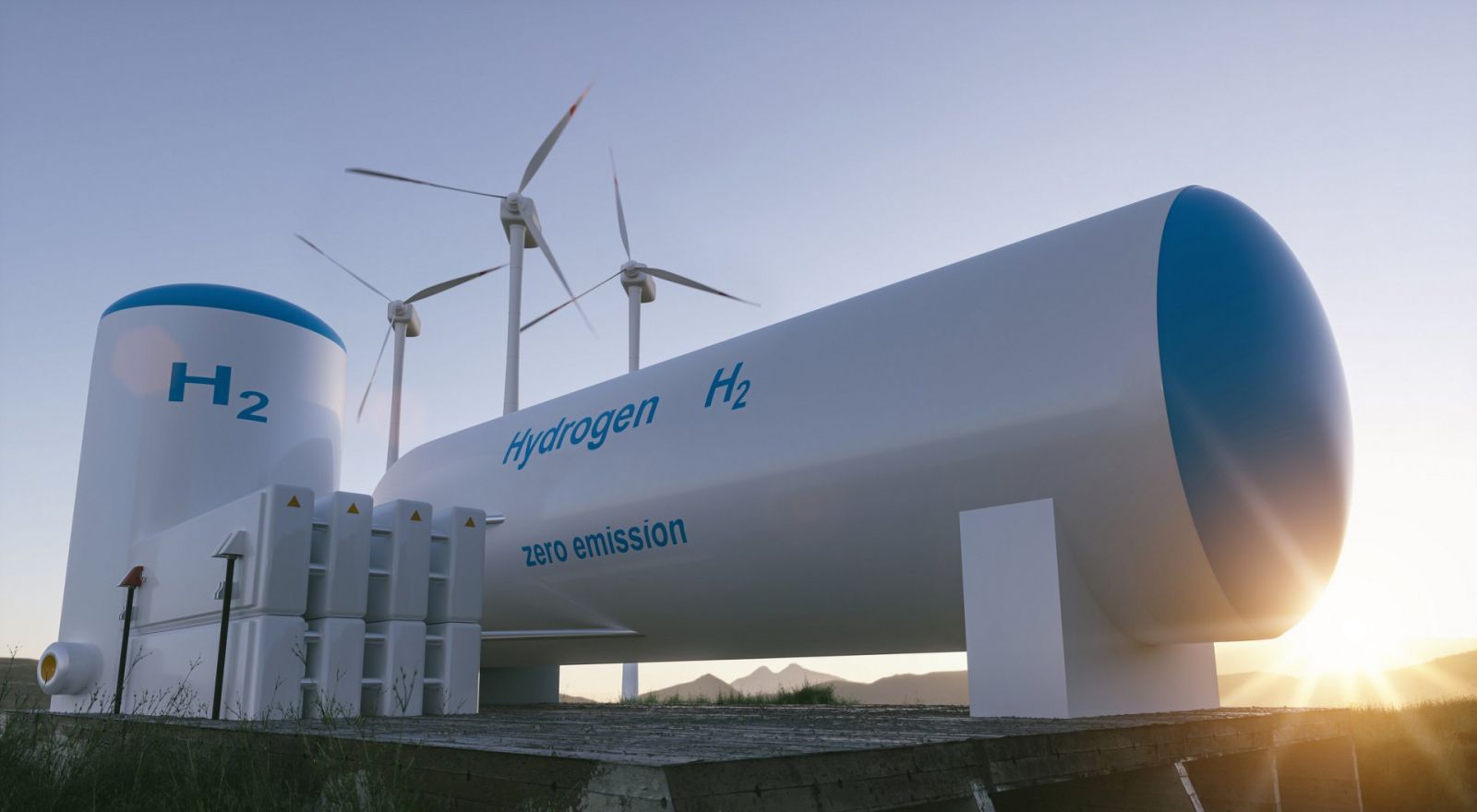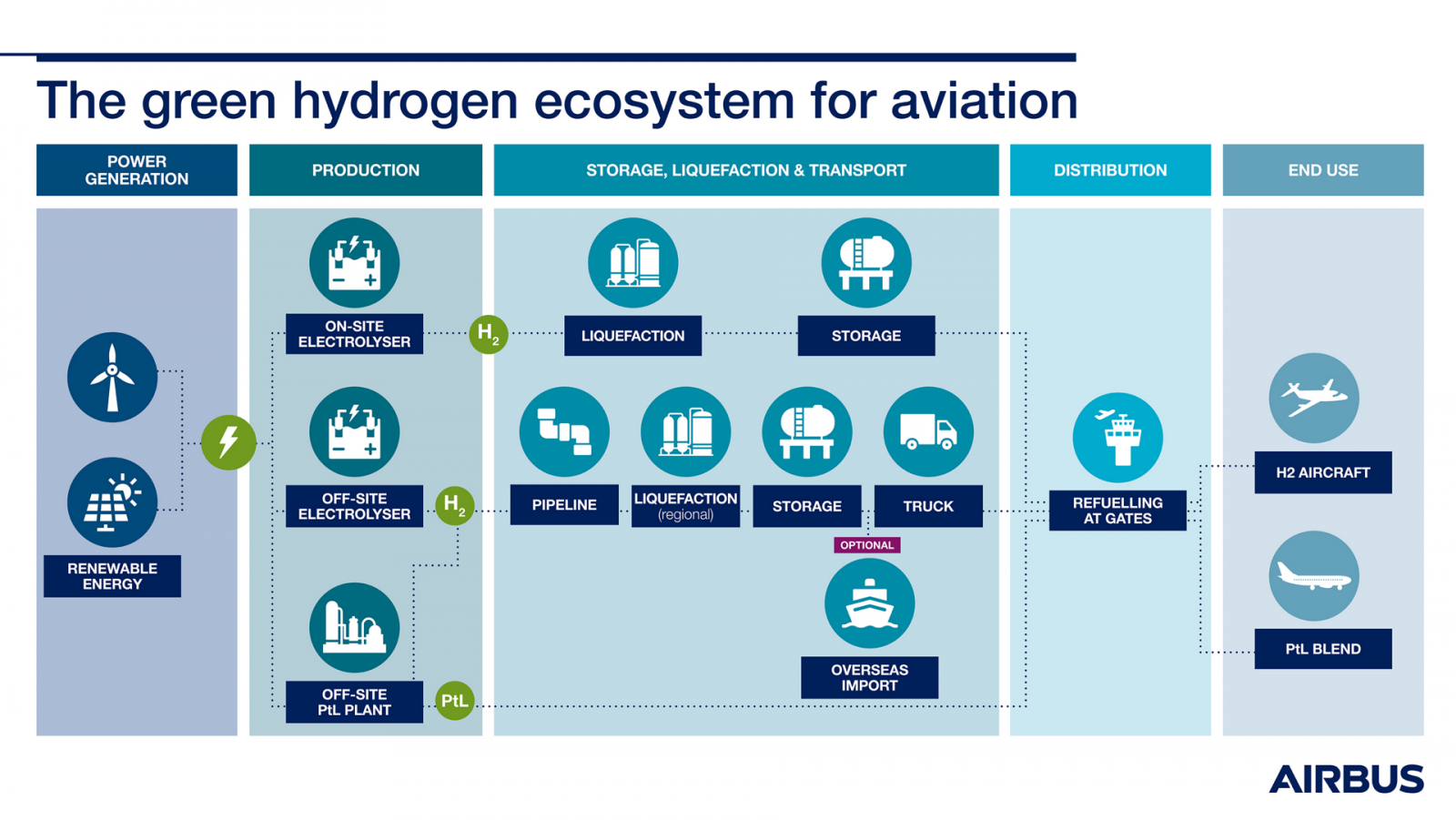


Not only Hydrogen fuel propelled aircrafts, Airbus re-imagines Airports of the future as 'Hubs' doing all sorts of transactions related to hydrogen fuel .
Airbus believes, Airports are at the forefront of leading the transition towards climate-neutral operations across the entire value chain. Airbus’ “Hydrogen Hub at Airports” concept brings together key airport ecosystem players to better understand hydrogen infrastructure needs for future aircraft and to develop a stepped approach to decarbonising all airport-associated infrastructure using hydrogen.
The use of hydrogen to power future aircraft is not only expected to significantly reduce aircraft emissions in the air: it could also help decarbonise air transport activities on the ground.
And the need to do so is certainly there. In fact, airport-controlled activities account for around 2-3% of the aviation industry’s total emissions. This represents approximately 15–20 megatons of CO₂ emissions per year globally.
For this reason, airports are now beginning to rethink how their infrastructures could be designed and operated to reduce their overall environmental footprint. One promising option is to build a unique airport ecosystem with hydrogen at the core of operations.

In 2020, Airbus launched “Hydrogen Hub at Airports'' to help airports reflect on how to do just that. The concept aims to jumpstart research into infrastructure requirements for future hydrogen aircraft, as well as low-carbon airport operations, across the entire value chain. And a variety of airport authorities, airlines and energy providers are already signing on to get involved.
"Airports have a key role to play to enable the transition to a climate-neutral air transport ecosystem. Hydrogen Hub at Airports enables us to collaborate with partners to define needs today, so we can pave the way for hydrogen adoption by 2035, says , Lionel Cousseins, ZEROe Market Development and Airline Relations Manager
Airports are complex infrastructure assets that rely on deep interdependencies between multiple systems, structures and stakeholders. For example, ground transport at airports includes not only passenger transport to and from aircraft via buses, but also heavy-duty vehicles – such as aircraft tugs and cargo trucks – for logistics. Traditionally, these vehicles have been powered by fossil fuels, which contribute to airports’ overall emissions. But hydrogen could drastically cut the emissions of airport ground transport. In addition, airports require vast amounts of energy for cooling and heating, the environmental footprint of which could be mitigated through hydrogen.

The on-site production (and liquefaction) of hydrogen could also be a promising option for airports to meet their individual energy needs. This solution would eliminate the need for transport to and from off-site hydrogen production facilities, which would further reduce emissions. In doing so, airports could also become future energy ecosystems with liquid hydrogen production at their core.
“Airports have a key role to play to enable the transition to a climate-neutral air transport ecosystem,” says Lionel Cousseins, Airbus ZEROe Market Development and Airline Relations Manager. “Hydrogen Hub at Airports enables us to collaborate with partners to define needs today, so we can pave the way for hydrogen adoption by 2035.”
To date, Airbus has activated Memorandums of Understanding (MoUs) with two airline customers to assess hydrogen infrastructure needs at airports. For example, an MoU with SAS Airlines is currently investigating airport infrastructure requirements for future hybrid, electric and hydrogen aircraft.
A similar collaboration agreement was also signed with easyJet. The results of both studies are expected to be released later this year.
For hydrogen to meet its full potential, the entire airport ecosystem – airport authorities, energy suppliers, regulatory authorities – needs to come together to collaborate. To this end, Airbus has signed a joint-partnership with ADP (Paris Airports) and Air Liquide to better understand hydrogen infrastructure needs at Paris Charles-de-Gaulle Airport (CDG) and Paris Orly Airport (ORY).
“At Airbus, we see ourselves as a facilitator,” Lionel explains. “This means we want to bring together all the key players around the same table to ensure we have the necessary infrastructure in place to bring our zero-emission aircraft to market by 2035.”
Airbus expects to announce additional strategic partnerships with key players across the aviation ecosystem in markets worldwide throughout 2021.
Report and Pictures : Airbus.
